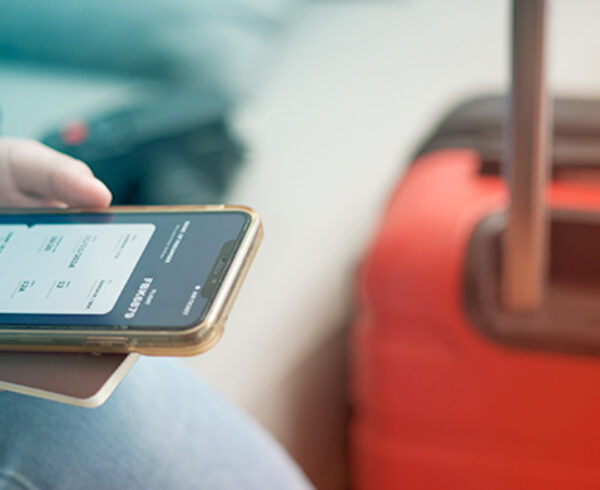Global business travel statistics show that work-related trips are a huge (and growing) source of revenue for airlines, hotels and car companies.
It’s no secret that business travel is a huge part of the overall travel industry. But, did you know that companies spent $1.3 trillion on global business travel in 2017? Business travel statistics show that the number is only expected to grow in the coming years, topping $1.7 trillion by 2022.
As a travel manager, you play an important role in this booming industry. A better understanding of business travel statistics can help your company get the value it needs from work trips while saving as much money as possible.
Here’s a look at business travel statistics related to 4 important categories: air travel, hotels, cars and expenses.
Air Travel Spend Statistics
On average, companies spend 17% of their total travel budget on airfare. The cost of an average domestic round-trip ticket is $470, and the average international round-trip ticket is $1,217.
How does your company’s travel spend compare to these averages? Of course, your location within the United States may affect what you spend on airfare. For example, if you’re served by a small, regional airport, you may spend more on airfare. But use these averages to look at your own average airfare spend. If you see a huge (and negative) disparity, it may be time to evaluate how you make airfare decisions.
Hotel Booking Spend Statistics
The average hotel room in domestic cities costs $155, while the average hotel room at international destinations costs $275. Again, your own averages will be influenced by the places where your team members most often travel.
Business travel statistics indicate that New York City is the most common work trip destination, followed closely by London. If your own team members are constantly traveling to New York City and London, you’ll find that your spend on hotel rooms is higher than the average. But, if your employees often travel to smaller cities (like Grand Rapids, Birmingham or Fresno), you should be able to secure savings compared to the average hotel spend.
Car Spend Statistics
Business travel statistics related to cars are a little bit different given the many options travelers enjoy (rentals, taxis, ride-share companies, etc.). On average, travelers spend the following on a per-trip basis:
- Car Rental: $182.61
- Taxis: $51.70
- Parking: $32.66
- Gas: $74.26
- Tolls: $49.06
Has your company embraced the sharing economy? If your travel policy doesn’t allow for the use of Lyft, Uber and other ride-share services, you may be missing out on significant savings. For example, using ride-share services eliminates the need to pay for parking, gas and tolls. The costs are included in the price of each ride. If nothing else, using ride-share services can streamline the expense process.

Expense Statistics
When the expenses start rolling in, it can be difficult to see the value in business travel. The average per diem for a traveling employee is $325, and the largest portion of a corporate travel budget is spent on food alone.
But business travel statistics also show a significant return on investment. For every dollar spent on business travel, companies see a $2.90 increase in profit and a $9.50 boost in revenue. Use those business travel statistics next time you need to make a case for the benefit of work-related trips.
Bonus Business Travel Stats
Given the amount of business travel technology and data we have in the 21st century, there are all sorts of fascinating statistics available. Check out these bonus business travel stats:
- Each year, U.S.-based companies send their employees on more than 405 million long-distance business trips. That means that about 1.1 million employees are on the road for work purposes each day.
- Work trips account for 28.4% of all travel and tourism revenue in the United States.
- Nearly three quarters of business travel is to destinations less than 250 miles away, and most of these work trips are taken by car rather than plane.
- Of all business trips, more than 40% included a portion dedicated to leisure. Nearly half of business travelers (49%) extended their trips so that they can take some personal time and do things important to them.
- No countries spend more on business travel than the United States and China. In 2016, the U.S. spent $284 billion — only surpassed by the $318 billion China spent.
Maximize Your Spend With JTB Business Travel
At JTB Business Travel, we serve as a comprehensive corporate travel agency to companies large and small — including help with maximizing your travel spend. Behind every service we provide and every recommendation we make is a common sense approach to business travel.
Contact us to learn more about what we can do for your business.














Leave a Comment